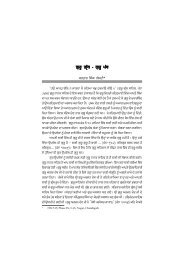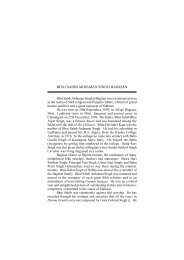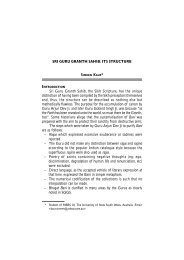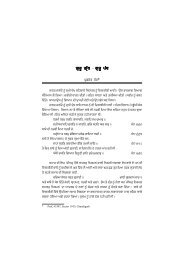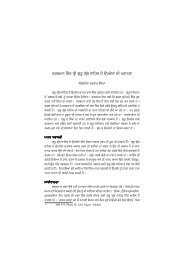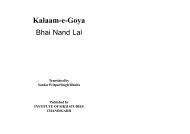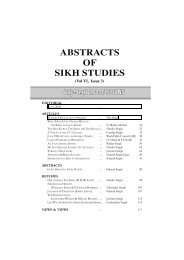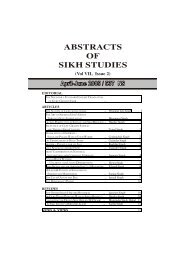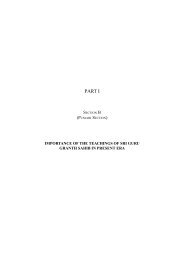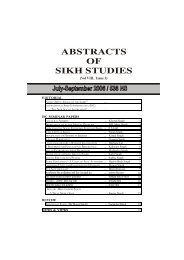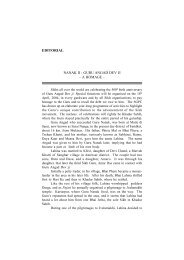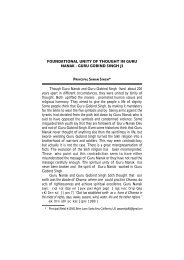You also want an ePaper? Increase the reach of your titles
YUMPU automatically turns print PDFs into web optimized ePapers that Google loves.
EDITORIALTHE DAWN OF A NEW ERAThe historic decision at the end <strong>of</strong> the two-day internationalconclave organised by the IOSS and a number <strong>of</strong> the other parties atChandigarh on the 13 th November, 2005, to form the International<strong>Sikh</strong> Confederation * , marks the beginning <strong>of</strong> a new era in the history<strong>of</strong> the <strong>Sikh</strong> community. The Conclave had attracted eminent <strong>Sikh</strong>sfrom practically all countries <strong>of</strong> the world with any sizeable population<strong>of</strong> <strong>Sikh</strong>s, indicating the need felt by all for a Body <strong>of</strong> this nature.Speaker after speaker stressed the need for a central body <strong>of</strong> the <strong>Sikh</strong>sto handle affairs concerning the Panth as a whole. Global dispersion<strong>of</strong> <strong>Sikh</strong>s, interaction with other religions and cultures, and frequentchallenges to Rahit Maryada and established values, have created asituation that demands a thoroughly-considered and prudent responseand collective decision.The idea is not new. When Guru Gobind Singh abolished personalGuruship, he ruled out dictatorship and gave the decision-makingauthority to the Panth, under the doctrine <strong>of</strong> Guru Granth-Guru Panth.In his lifetime, he trained the <strong>Sikh</strong>s to exercise this authority throughPanj Piaras, and he is on record to have himself submitted to theirdecisions. In essence, it means that collective leadership is betterthan the whims <strong>of</strong> an individual. Subsequent history <strong>of</strong> the Panthalso yields the same lesson. So long as the Khalsa followed thisprinciple, as in the case <strong>of</strong> gurmattas <strong>of</strong> the Sarbat Khalsa in the eighteenthcentury, it touched new heights <strong>of</strong> glory, establishing a powerful empirein the north <strong>of</strong> India. On the other hand, when the authority passedinto the hands <strong>of</strong> an individual, degeneration and decline followed.The empire fell and the Khalsa lost its sovereignty in the middle <strong>of</strong>* Website : www.int-sikh-confed.net



